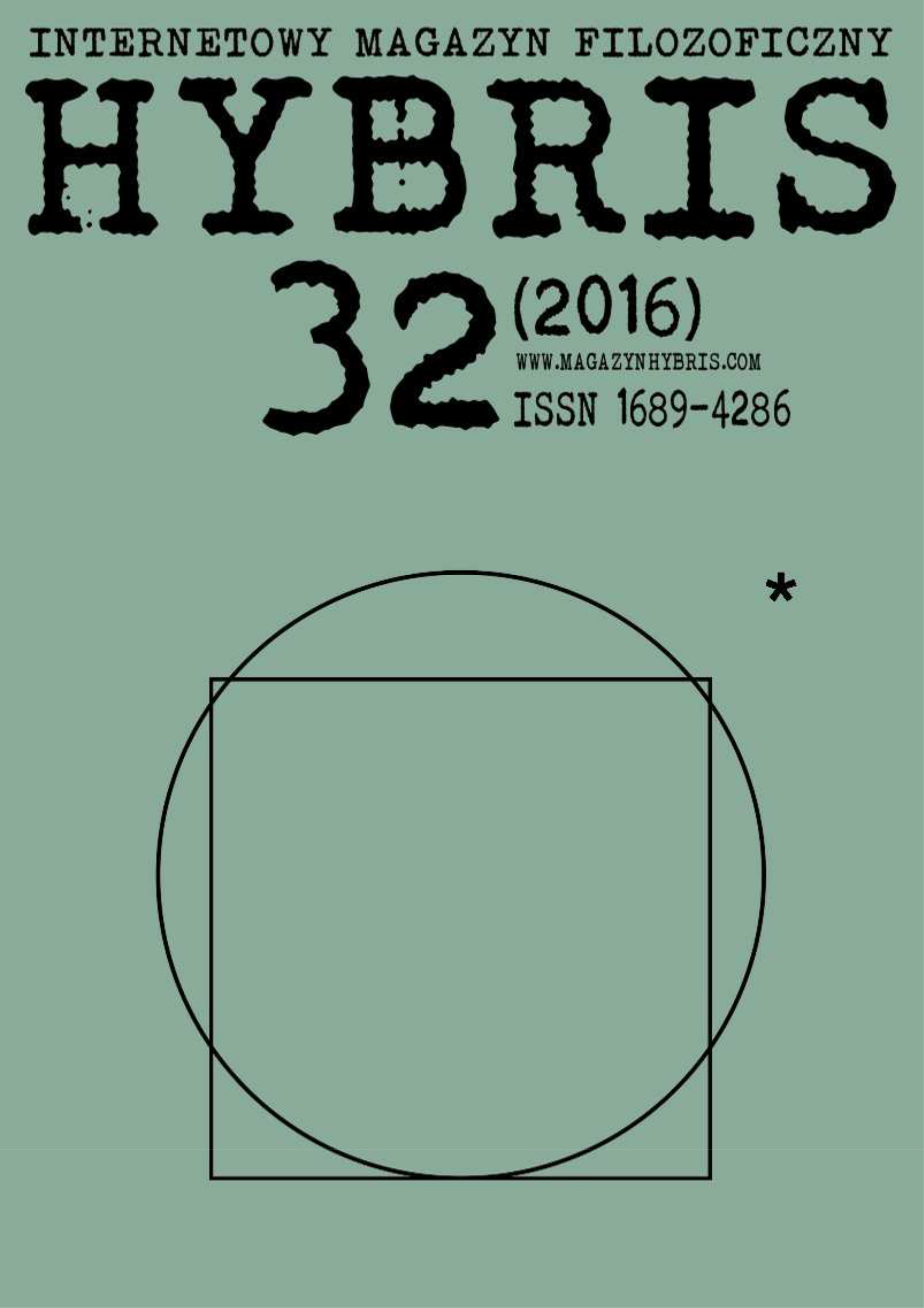Płeć jako arche, czyli czy według Arystotelesa możliwa jest zmiana płci?
DOI:
https://doi.org/10.18778/1689-4286.32.05Słowa kluczowe:
Arystoteles, De generatione animalium, płeć, zmiana płci, kastracjaAbstrakt
According to Aristotle’s views presented in his logical works and Metaphysics, sex appears to be an essential attribute of the genus animal, and maleness and femaleness are a pair of contrary qualities, although it is not quite clear what sort of contrariety Aristotle understands the contrariety of sex to be. As qualities admit of variation of degree, and in the case of contraries there are possible changes from one into the other, in this article I address the question if the sex of an individual animal can also be changed into the opposite one.
In De generatione animalium Aristotle describes sex as arche — arche of generation, but also arche of every animal’s external appearance and generative ability. Aristotle applies this term to two body parts, which he presents as factors determining sex: the heart as an origin of natural heat, and, above all, the genitals. In the case of males, destruction of the latter, i.e. castration, is depicted as a sex change, because the male becomes like the female in respect of external form and lack of generative power. As change in the other direction is impossible, we can conclude that the contrariety of sex seems to be, according to Aristotle, an opposition of possession and privation.
Bibliografia
Aristotelis Opera ex recognitione Immanuelis Bekkeri. Editio altera quam curavit O. Gigon. Berolini 1960.
Zobacz w Google Scholar
DOI: https://doi.org/10.1515/9783110835861
Aristotle, 1953, Generation of Animals with an English translation by A. L. Peck, The Loeb Classical Library.
Zobacz w Google Scholar
Arystoteles, 1990–2001, Dzieła wszystkie, I–VI, Warszawa: PWN.
Zobacz w Google Scholar
Arystoteles, 1990, Kategorie, przeł. Kazimierz Leśniak, [w:] Dzieła wszystkie, t. I, Warszawa: PWN.
Zobacz w Google Scholar
Arystoteles, 1990, Analityki wtóre, przeł. Kazimierz Leśniak, [w:] Dzieła wszystkie, t. I, Warszawa: PWN.
Zobacz w Google Scholar
Arystoteles, 1990, Topiki, przeł. Kazimierz Leśniak, [w:] Dzieła wszystkie, t. I, Warszawa: PWN.
Zobacz w Google Scholar
Arystoteles, 1990a, Metafizyka, przeł. Kazimierz Leśniak, [w:] Dzieła wszystkie, t. II, Warszawa: PWN.
Zobacz w Google Scholar
Arystoteles, 1992, O częściach zwierząt, przeł. Paweł Siwek, [w:] Dzieła wszystkie, t. III, Warszawa: PWN.
Zobacz w Google Scholar
Arystoteles, 1993, O rodzeniu się zwierząt, przeł. Paweł Siwek, [w:] Dzieła wszystkie, t. IV, Warszawa: PWN.
Zobacz w Google Scholar
Arystoteles, 2001, Retoryka, przeł. Henryk Podbielski, [w:] Dzieła wszystkie, t. VI, Warszawa: PWN.
Zobacz w Google Scholar
Bat-Ami, Bar On (edds.), 1994, Engendering Origins: Critical Feminist Readings in Plato and Aristotle, Albany: State University of New York Press.
Zobacz w Google Scholar
Cooper, John M., 1988, Metaphysics in Aristotle’s Embryology, „Proceedings of the Cambridge Philological Society”, 34, ss. 14–41.
Zobacz w Google Scholar
DOI: https://doi.org/10.1017/S0068673500005022
Deslauriers, Marguerite, 1998, Sex and Essence in Aristotle’s “Metaphysics” and Biology, [w:] „Feminist Interpretation of Aristotle”, ss. 136–167.
Zobacz w Google Scholar
Harding, Sandra, Hintikka, Merrill B., (edds.), 2003, Discovering Reality (Second Edition): Feminist Perspectives on Epistemology, Metaphysics, Methodology, and Philosophy of Science, Kluwer Academic Publishers.
Zobacz w Google Scholar
Freeland, Cynthia, 1998, Feminist Interpretation of Aristotle, Pennsylvania: Pennsylvania State University Press.
Zobacz w Google Scholar
König, Jacqueline, 2013, Ancient Greco-Roman Views of the Testicle in Celsus and Beyond, „Rosetta” 13, ss. 228–241.
Zobacz w Google Scholar
Mayhew, Robert, 2004, The Female in Aristotle's Biology: Reason or Rationalization, Chicago.
Zobacz w Google Scholar
DOI: https://doi.org/10.7208/chicago/9780226512020.001.0001
Sowa, Joanna, 2014, Czy kobieta jest potworem? Płeć żeńska w „De generatione animalium” Arystotelesa, „Roczniki Humanistyczne”, z. 3., Filologia Klasyczna, t. LXII, ss. 27–48.
Zobacz w Google Scholar
Pobrania
Opublikowane
Jak cytować
Numer
Dział
Licencja

Utwór dostępny jest na licencji Creative Commons Uznanie autorstwa – Użycie niekomercyjne – Bez utworów zależnych 4.0 Międzynarodowe.






